- Home /
- Bagpipe ar… /
Minstrel Boy
Section: minstrel boy
tells the story of a young minstrel who goes to war.
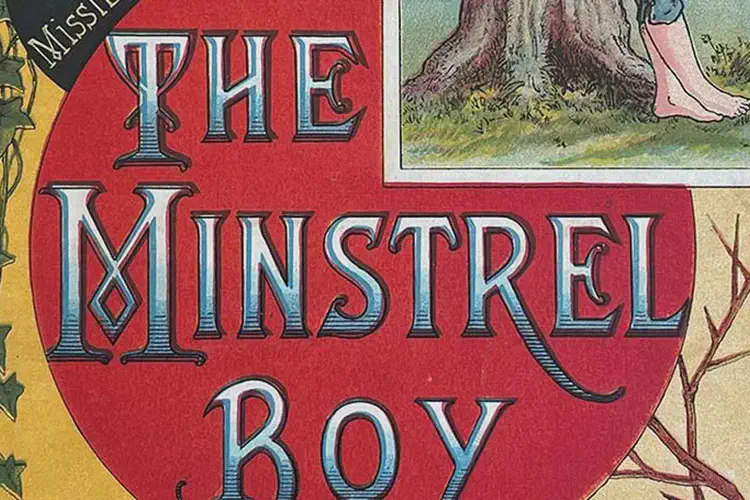
Table of Contents
“The Minstrel Boy” is a widely known Irish song written by Thomas Moore, (1779–1852) an Irish poet, singer, songwriter, and entertainer.
It was first published in 1813 in Moore’s collection of Irish Melodies. The song is particularly noted for its deep patriotic sentiment and has been associated with various movements and causes in Irish history. Moore himself came to be nicknamed “The Minstrel Boy”, and indeed it is the title of Leonard Strong’s 1937 biography of Moore.
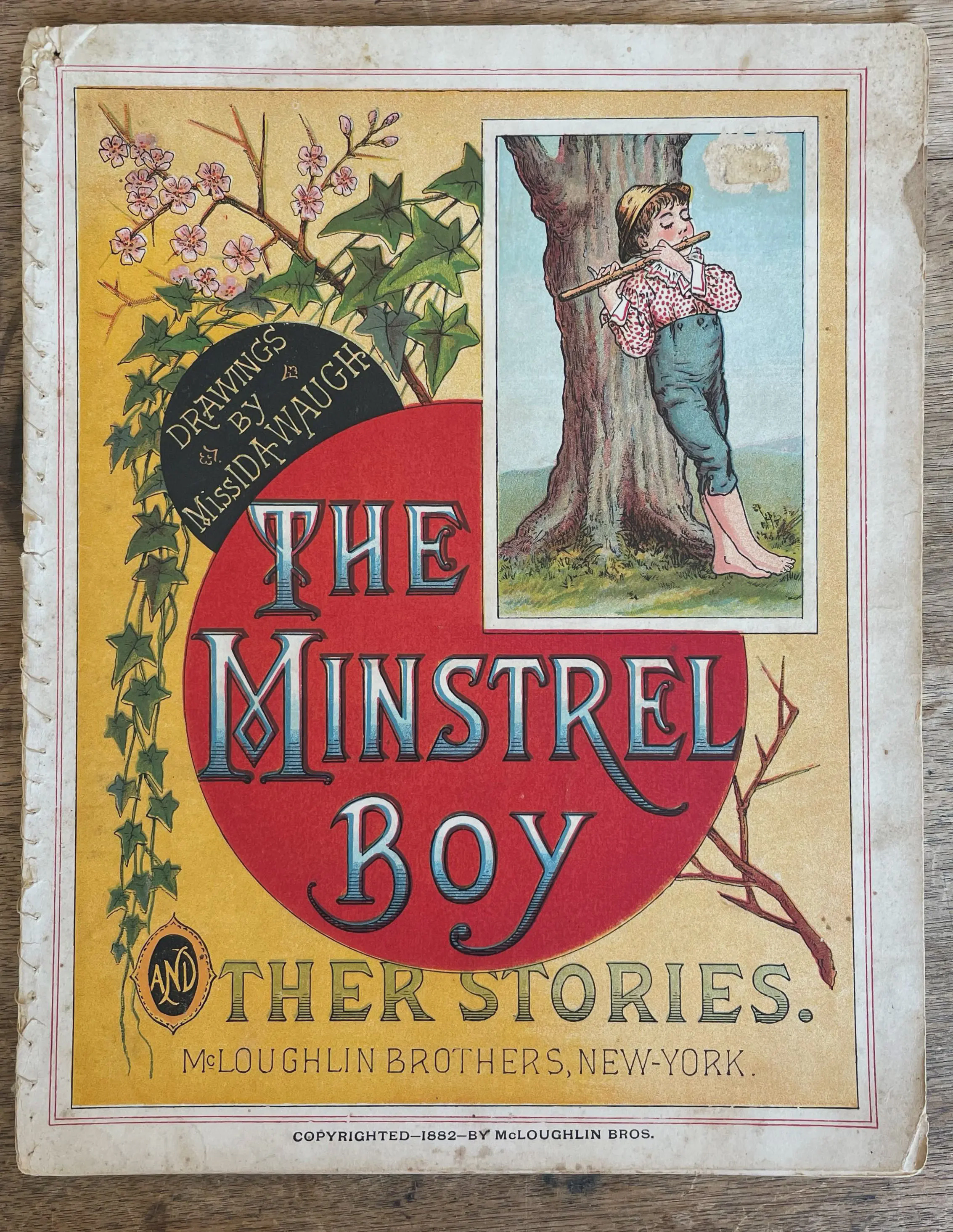
The lyrics of “The Minstrel Boy” tell the story of a young minstrel (a medieval bard or musician) who goes to war. The song allegorically references the struggle for Irish freedom. The minstrel’s harp, symbolizing Ireland, is destroyed to prevent it from falling into the hands of the enemy, reflecting the destruction of Irish culture under foreign rule. This song has been adapted and used in various contexts, especially in military and memorial ceremonies, and is still popular today.
The melody is taken from “The Moreen,” an old Irish aire. The song’s emotive music and evocative lyrics have contributed to its lasting popularity and its status as an iconic song of Irish culture and history.
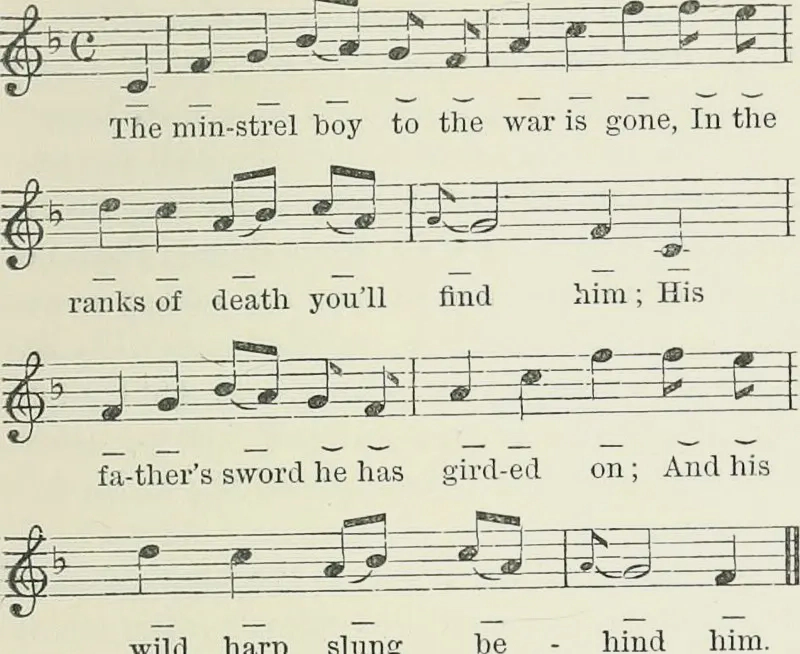
“Minstrel Boy” - The original lyrics are as follows:
I
- The Minstrel-Boy to the war is gone,
- In the ranks of death you’ll find him;
- His father’s sword he has girded on,
- And his wild harp slung behind him.
- “Land of song!” said the warrior-bard,
- “Tho’ all the world betrays thee,
- One sword, at least, thy rights shall guard,
- One faithful harp shall praise thee!”
II
- The Minstrel fell!—but the foeman’s chain
- Could not bring that proud soul under;
- The harp he lov’d ne’er spoke again,
- For he tore its chords asunder;
- And said, “No chains shall sully thee,
- Thou soul of love and bravery!
- Thy songs were made for the pure and free,
- They shall never sound in slavery.”
Tags:
Related Keywords
No. Ireland Piping & Drumming School - O'Neill & Runfurly House
The Northern Ireland Piping and Drumming school was founded in 1980 and is supported by an annual grant from The Arts Council of Northern Ireland.
Related Posts
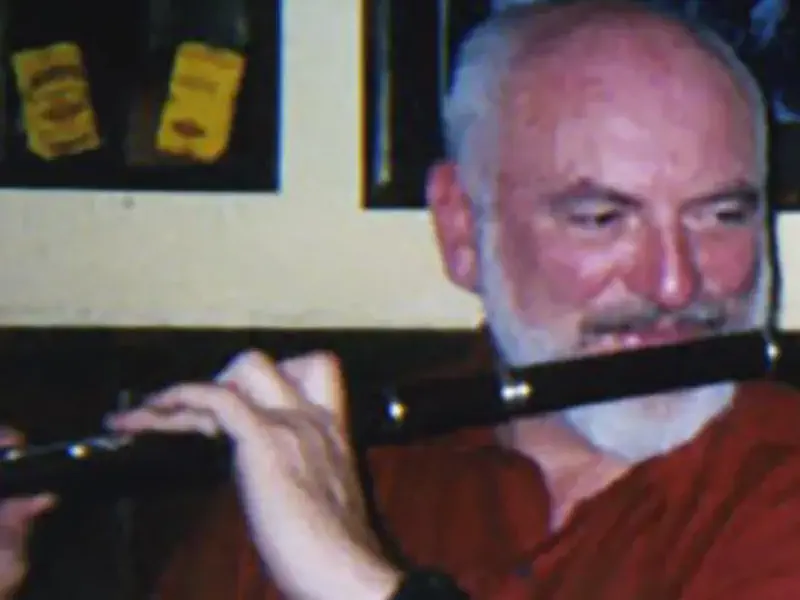
flute
- March 18, 2021
- Instruments
The majority of traditional Irish flute players use a wooden, simple-system flute.
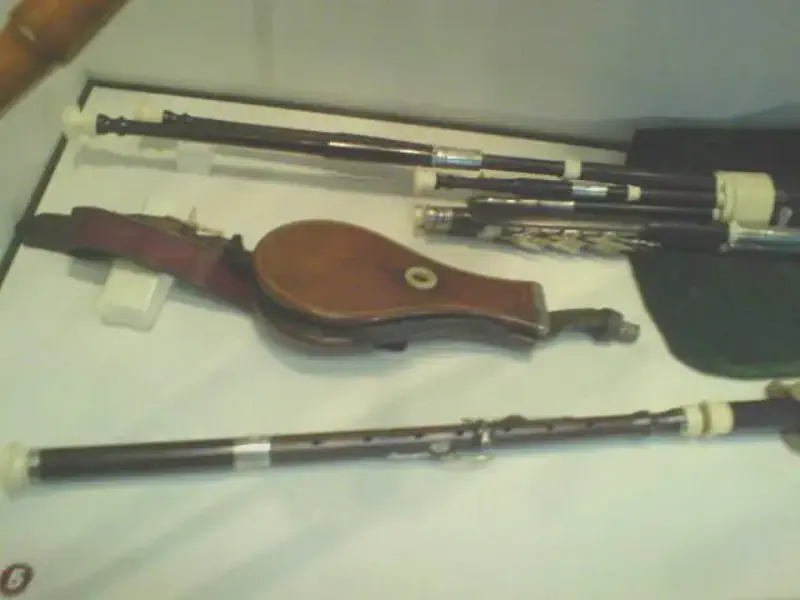
uilleann pipes
- March 18, 2021
- Instruments
The Uilleann pipes, Ireland’s most famous bagpipes, are a bellows-driven instrument known for their melodic, softer sound, distinct from the louder Great Highland Bagpipes of Scotland.
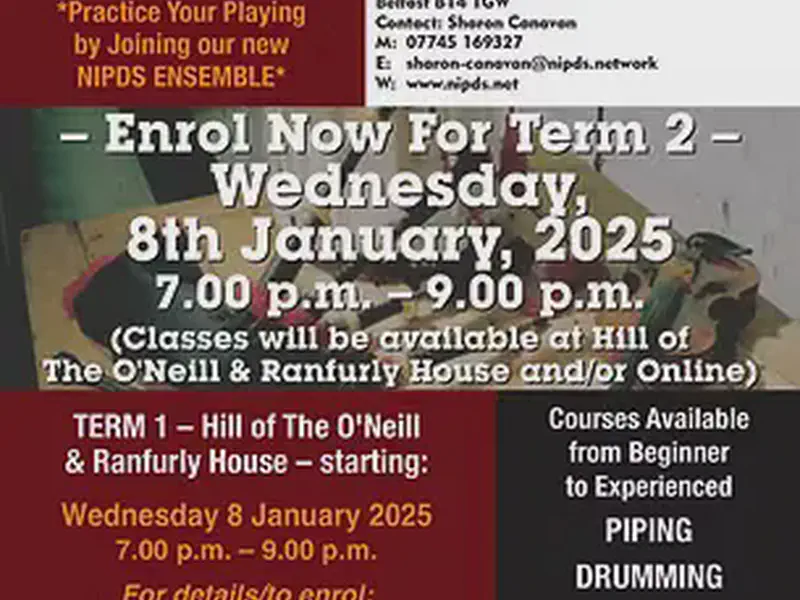
No. Ireland Piping & Drumming School - O'Neill & Runfurly House
- July 13, 2025
- Instructor
The Northern Ireland Piping and Drumming school was founded in 1980 and is supported by an annual grant from The Arts Council of Northern Ireland.